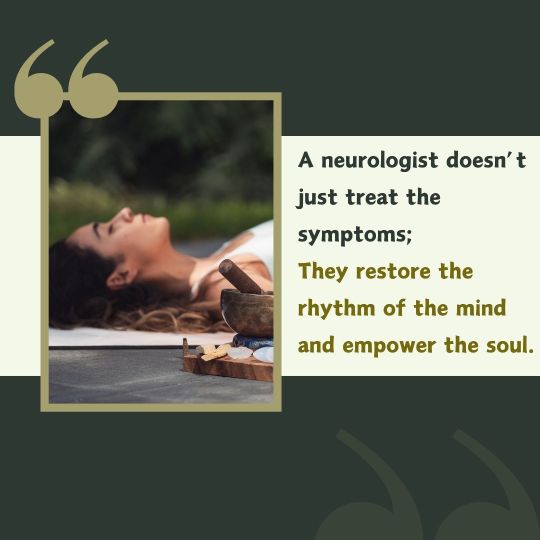Shamis Tate is a rising star in Functional Medicine, specializing in addressing chronic metabolic diseases like Type 2 Diabetes and hypothyroidism. As a board-certified Family Nurse Practitioner with a Master of Science in Nursing, Shamis brings a visionary approach to healthcare, focusing on personalized, root-cause solutions for her patients.
Don't wanna be here? Send us removal request.
Text
Shamis Tate Advice on Preventing and Managing Diabetes Complications

Diabetes is a chronic condition that affects millions of people worldwide. While managing blood sugar levels is crucial, preventing and managing diabetes complications is equally important. Shamis Tate, a renowned health and wellness expert, shares practical advice to help individuals with diabetes live healthier lives. In this blog, we’ll explore her tips on preventing and managing diabetes complications in simple, easy-to-understand language.
Understanding Diabetes Complications
Diabetes can lead to various complications if not managed properly. These include heart disease, kidney damage, nerve problems, vision loss, and foot issues. The good news is that many of these complications can be prevented or delayed with the right lifestyle changes and medical care.
Shamis Tate’s Tips for Preventing Diabetes Complications
1. Monitor Blood Sugar Regularly
Keeping track of your blood sugar levels is the first step in managing diabetes. Regular monitoring helps you understand how food, exercise, and medication affect your levels.
Use a glucose meter or continuous glucose monitor (CGM) as recommended by your doctor.
2. Follow a Balanced Diet
A healthy diet is key to managing diabetes. Focus on eating whole foods like vegetables, fruits, lean proteins, and whole grains.
Avoid sugary drinks, processed foods, and excessive carbohydrates.
Shamis Tate emphasizes portion control and eating smaller, frequent meals to maintain stable blood sugar levels.
3. Stay Physically Active
Regular exercise helps lower blood sugar levels and improves insulin sensitivity.
Aim for at least 30 minutes of moderate activity, such as walking, swimming, or cycling, most days of the week.
Always consult your doctor before starting a new exercise routine.
4. Take Medications as Prescribed
If your doctor has prescribed medication or insulin, take it exactly as directed.
Never skip doses or adjust your medication without consulting your healthcare provider.
5. Manage Stress Effectively
Stress can raise blood sugar levels, making diabetes harder to manage.
Practice relaxation techniques like deep breathing, meditation, or yoga to reduce stress.
Managing Diabetes Complications
If you’re already experiencing complications, Shamis Tate offers the following advice to manage them effectively:
1. Regular Health Checkups
Visit your doctor regularly to monitor your overall health. This includes checking your blood pressure, cholesterol, and kidney function.
Early detection of complications can prevent them from worsening.
2. Foot Care
Diabetes can cause nerve damage and poor circulation, leading to foot problems.
Inspect your feet daily for cuts, blisters, or sores. Wear comfortable shoes and keep your feet clean and moisturized.
3. Eye Care
High blood sugar can damage the blood vessels in your eyes, leading to vision problems.
Schedule annual eye exams to detect issues like diabetic retinopathy early.
4. Heart Health
People with diabetes are at a higher risk of heart disease. Maintain a healthy weight, eat a heart-friendly diet, and avoid smoking.
Monitor your blood pressure and cholesterol levels regularly.
5. Stay Hydrated
Drinking enough water helps your kidneys function properly and prevents dehydration, which can affect blood sugar levels.
Key Takeaways from Shamis Tate’s Advice
Prevention is better than cure: Focus on maintaining stable blood sugar levels to avoid complications.
Lifestyle matters: A healthy diet, regular exercise, and stress management are essential for diabetes care.
Stay informed: Regular checkups and self-monitoring can help you stay on top of your health.
Final Thoughts
Managing diabetes doesn’t have to be overwhelming. By following Shamis Tate’s practical advice, you can prevent complications and lead a healthy, fulfilling life. Remember, small, consistent changes in your daily routine can make a big difference in managing diabetes effectively.
If you found this blog helpful, share it with someone who might benefit from these tips. Together, we can raise awareness and help more people live well with diabetes.
#shamis tate#shamistate#health#chronicpain#nervedamage#nerve damage#painmanagement#neuropathy#healthcare#nervehealth
0 notes
Text

Shamis Tate is not just a neurologist—she is a beacon of hope, offering patients the possibility of a brighter, healthier tomorrow. With her extensive expertise in neurology and functional medicine, Shamis Tate goes beyond treating the brain and nervous system. She is dedicated to restoring function, alleviating pain, and providing personalized care that empowers individuals to reclaim their health. Her compassionate approach to healing brings new possibilities, helping patients navigate through neurological challenges with hope, confidence, and the promise of a better future.
0 notes
Text
Shamis Tate Shares Breakthrough Techniques for Managing Neuropathy
Shamis Tate, a distinguished neurologist and Nurse Practitioner, is revolutionizing neuropathy care with breakthrough techniques. By combining her expertise in functional medicine and cutting-edge treatments, she offers personalized solutions to manage nerve damage and alleviate pain. Her compassionate, holistic approach empowers patients to regain their quality of life, targeting the root causes for lasting relief and healing.
0 notes
Text
How Shamis Tate Transformed Lives Through Holistic Care Practices
Shamis Tate is a dedicated holistic care practitioner with a passion for transforming lives through mind-body wellness. With a deep belief in the body’s natural ability to heal, Shamis combines personalized care, mindfulness techniques, nutrition education, and holistic therapies to help clients achieve lasting balance and vitality. Known for a compassionate approach and a commitment to addressing the root causes of health challenges, Shamis empowers individuals to embrace wellness in all aspects of life. Whether guiding clients through lifestyle changes or offering restorative therapies, Shamis is devoted to helping others unlock their full potential for health and happiness.
0 notes
Text
Shamis Tate Discusses the Role of Insulin in Managing Diabetes

Diabetes is a chronic condition that affects millions of people worldwide. It occurs when the body cannot produce or effectively use insulin, a hormone that regulates blood sugar levels. Managing diabetes requires a comprehensive approach, and one of the most important aspects of this is understanding the role of insulin. Shamis Tate, a distinguished neurologist with a specialization in neuropathy and nerve damage, has significant insights into how insulin plays a critical role in managing diabetes and preventing long-term complications.
What Is Insulin and Why Is It Important?
Insulin is a hormone produced by the pancreas that helps regulate blood sugar (glucose) levels. It allows cells in the body to absorb glucose from the bloodstream and use it as energy. Without enough insulin or if the body becomes resistant to it, glucose builds up in the blood, leading to high blood sugar levels—a hallmark of diabetes.
There are two main types of diabetes:
Type 1 Diabetes: In this form of diabetes, the body does not produce insulin at all.
Type 2 Diabetes: In this case, the body either doesn’t produce enough insulin or becomes resistant to it, making it harder for the cells to absorb glucose.
How Insulin Helps in Diabetes Management
For people with diabetes, insulin therapy is often a vital part of their treatment plan. Here’s how insulin plays a key role in managing the condition:
1. Regulates Blood Sugar Levels
One of the main purposes of insulin is to keep blood sugar levels within a normal range. For people with diabetes, insulin injections or insulin pumps are used to replace or supplement the body's natural insulin. This helps ensure that glucose in the blood is absorbed and stored correctly, preventing the complications that arise from high blood sugar.
2. Prevents Complications from Diabetes
Uncontrolled blood sugar can lead to long-term health problems, including nerve damage, kidney disease, heart disease, and vision loss. Shamis Tate highlights the importance of keeping blood sugar levels in check to prevent such complications. One of the areas he focuses on is neuropathy, which is a type of nerve damage often caused by prolonged high blood sugar levels. Regular use of insulin helps to prevent these complications by maintaining stable blood sugar levels.
3. Improves Quality of Life
When blood sugar levels are well-controlled, people with diabetes can lead healthier, more active lives. Proper insulin management can reduce the risk of experiencing common symptoms of diabetes, such as fatigue, frequent urination, and blurry vision. Additionally, people with diabetes may experience less anxiety and stress related to their condition when their insulin therapy is working effectively.
4. Supports Weight Management
For those with Type 2 diabetes, managing weight is an essential part of controlling blood sugar levels. Insulin therapy can help stabilize blood sugar, which in turn can support weight loss efforts. By ensuring that the body has the energy it needs without the buildup of excess glucose in the bloodstream, insulin can make it easier to maintain a healthy weight and prevent the complications of obesity.
The Different Forms of Insulin Therapy
There are various types of insulin therapy used depending on the individual's needs and the type of diabetes they have. Shamis Tate advises that the treatment should be personalized to achieve the best results. Some common types of insulin include:
Rapid-acting Insulin: Works quickly to reduce blood sugar levels after meals.
Long-acting Insulin: Provides a steady, slow release of insulin throughout the day.
Intermediate-acting Insulin: Helps to control blood sugar levels between meals and overnight.
Combination Insulin: A mix of short-acting and long-acting insulin, providing flexibility for individuals with Type 2 diabetes.
The Importance of Consistency and Monitoring
Insulin therapy is most effective when used consistently and in combination with regular monitoring of blood sugar levels. Shamis Tate emphasizes the need for routine check-ups and adjustments in insulin therapy as needed. Keeping track of blood sugar trends allows individuals with diabetes to make informed decisions about their insulin dosage and overall management plan.
Conclusion
The role of insulin in managing diabetes is essential for controlling blood sugar levels and preventing long-term health issues. With proper insulin therapy, people with diabetes can lead healthier lives and reduce the risk of complications such as neuropathy and other nerve damage conditions. Shamis Tate expertise in neuropathy highlights the significance of early intervention and consistent management, which includes effective insulin use. By working closely with healthcare providers, individuals with diabetes can find the right insulin therapy and create a treatment plan that improves both their health and quality of life.
Remember, managing diabetes is not just about taking insulin; it also involves maintaining a balanced diet, staying active, and monitoring blood sugar levels regularly. With the right approach, people with diabetes can take control of their health and lead a fulfilling life.
0 notes
Text

If you're suffering from neuropathy, you know how it can affect your quality of life. Whether it's persistent pain, numbness, or tingling, finding the right solution can seem overwhelming. Enter Shamis Tate, a trusted expert in neuropathy relief who is dedicated to providing personalized and effective treatments designed to restore comfort and mobility. With years of experience, Shamis Tate specializes in advanced, non-invasive therapies that target the root causes of neuropathy, offering relief where traditional methods may fall short. You can rely on Shamis Tate for a comprehensive approach that focuses on your specific needs, bringing you the peace of mind and relief you deserve. When it comes to neuropathy care, Shamis Tate is the expert you can trust to help you live a pain-free, active life again.
0 notes
Text
In this powerful and personal piece, Shamis Tate opens up about her journey of living with chronic pain, specifically caused by nerve damage, and the mental health struggles that come with it. She highlights the challenges of living with constant physical discomfort, the emotional toll it takes, and the importance of mental well-being in managing such a condition. Shamis shares the coping strategies that helped her along the way, such as therapy, mindfulness, and building a supportive network of friends and family. She encourages others dealing with similar issues to seek support and embrace a mindset of self-compassion, offering hope and encouragement to those navigating their own struggles with chronic pain.
0 notes
Text
Shamis Tate Discusses the Intersection of Diet, Exercise, and Neurological Health

The connection between diet, exercise, and neurological health is an increasingly popular topic of discussion, especially in the context of overall wellness. Shamis Tate, a prominent expert in holistic health, emphasizes the importance of these three elements working together to support not only physical health but also mental and cognitive function. In this blog, we will delve into the ways diet, exercise, and neurological health are interlinked and why they are vital for overall well-being.
The Role of Diet in Neurological Health
Diet plays a crucial role in maintaining neurological health. The brain, like the rest of the body, requires the right nutrients to function optimally. Shamis Tate highlights that a diet rich in essential nutrients, such as omega-3 fatty acids, antioxidants, and vitamins, is key to supporting cognitive function, memory, and overall brain health.
Omega-3 Fatty Acids: These essential fats are found in foods like fish, flaxseeds, and walnuts. Omega-3 fatty acids are known for their ability to reduce inflammation in the brain, promote the formation of new neural connections, and protect against cognitive decline. Shamis Tate emphasizes the importance of including omega-3-rich foods in your diet to promote long-term brain health.
Antioxidants: Fruits and vegetables are loaded with antioxidants, which help combat oxidative stress and protect the brain from harmful free radicals. Berries, dark leafy greens, and cruciferous vegetables are some of the best sources. According to Shamis, antioxidant-rich foods can help reduce the risk of neurodegenerative diseases and improve cognitive function over time.
Vitamins and Minerals: Key vitamins and minerals, such as B-vitamins, vitamin D, magnesium, and zinc, are also vital for optimal brain health. These nutrients support neurotransmitter function, regulate mood, and contribute to brain plasticity—the ability of the brain to adapt and form new connections. A balanced diet rich in these nutrients is essential for maintaining mental clarity and focus.
The Impact of Exercise on Brain Function
Exercise is another essential component of neurological health. Shamis Tate explains that physical activity not only improves cardiovascular health but also has a profound effect on brain function. Regular exercise helps increase blood flow to the brain, which in turn boosts the delivery of oxygen and nutrients necessary for cognitive function.
Neurogenesis: One of the most significant benefits of exercise for the brain is its ability to promote neurogenesis—the process by which new neurons are formed. Studies have shown that aerobic exercises, such as running, swimming, or cycling, stimulate the release of brain-derived neurotrophic factor (BDNF), a protein that plays a key role in brain health. Shamis Tate emphasizes that this process can help improve memory, learning, and overall cognitive function.
Mood Regulation and Stress Reduction: Physical activity has been shown to increase the production of endorphins, the body's natural mood elevators. This not only helps alleviate symptoms of depression and anxiety but also protects the brain from the harmful effects of chronic stress. Shamis Tate encourages individuals to engage in regular exercise to reduce stress and improve overall mental health.
Cognitive Benefits: In addition to its mood-enhancing effects, exercise also contributes to better cognitive function, including sharper memory and improved problem-solving skills. Studies have found that those who engage in regular physical activity are less likely to experience cognitive decline as they age. For Shamis, exercise is a powerful tool in maintaining long-term neurological health.
The Synergistic Effect of Diet and Exercise on Neurological Health
When diet and exercise are combined, their impact on neurological health is even greater. Shamis Tate points out that a balanced diet provides the necessary nutrients to support the brain, while exercise enhances the brain's ability to utilize those nutrients effectively.
For example, a healthy diet rich in omega-3 fatty acids and antioxidants can help protect the brain from inflammation and oxidative damage, while regular exercise ensures that the brain receives a steady supply of oxygen and nutrients through improved circulation. Together, these factors work synergistically to enhance cognitive function, memory, and mental clarity.
Conclusion
In conclusion, Shamis Tate advocates for a holistic approach to neurological health that integrates both diet and exercise. By focusing on nutrient-dense foods and incorporating regular physical activity into your routine, you can support brain health and reduce the risk of neurological disorders. The intersection of diet, exercise, and neurological health is essential for maintaining overall well-being, and Shamis Tate’s insights offer valuable guidance for anyone looking to optimize their brain function and lead a healthier life.
By making informed choices about what we eat and how we move, we can create a foundation for optimal brain health that lasts a lifetime.
0 notes
Text
Shamis Tate Proven Tips for Managing Neuropathy Pain Effectively

Neuropathy pain can be a challenging condition to live with, but there are effective ways to manage it. If you're dealing with neuropathy, understanding the best strategies to reduce discomfort and improve your quality of life is key. In this blog, we will share some proven tips for managing neuropathy pain effectively. These strategies are simple and practical, helping you take control of your symptoms with easy-to-implement changes to your daily routine.
What is Neuropathy Pain?
Neuropathy pain is often caused by damage to the nerves that carry signals from the brain to the rest of the body. This damage can result from various conditions, such as diabetes, injury, or infections. Symptoms may include tingling, burning, or shooting pain, and they often affect the feet and hands. Understanding the underlying causes of neuropathy pain is the first step in addressing it.
Proven Tips for Managing Neuropathy Pain
1. Consult a Healthcare Professional
The first step in managing neuropathy pain effectively is to consult with a healthcare provider. A doctor can help you determine the exact cause of your neuropathy and recommend appropriate treatments. Shamis Tate, an expert in pain management, emphasizes the importance of working with your doctor to create a personalized treatment plan. This might include prescription medications, physical therapy, or even lifestyle changes.
2. Manage Underlying Health Conditions
One of the most important aspects of neuropathy pain management is controlling any underlying conditions that may be contributing to nerve damage. For example, if you have diabetes, keeping your blood sugar levels under control is critical. Shamis Tate recommends working closely with your healthcare provider to manage conditions like diabetes, high blood pressure, or vitamin deficiencies that may worsen neuropathy.
3. Incorporate Regular Exercise
Exercise is a powerful tool in managing neuropathy pain. Regular physical activity can help improve circulation, strengthen muscles, and reduce inflammation—all of which can alleviate nerve pain. Shamis Tate encourages patients to engage in low-impact exercises such as walking, swimming, or biking. These activities help to improve overall health without putting unnecessary strain on the body.
4. Consider Physical Therapy
Physical therapy is another highly effective way to manage neuropathy pain. A physical therapist can work with you to design an exercise routine tailored to your needs, focusing on strengthening muscles, improving balance, and preventing falls. These exercises help reduce pain and improve mobility, which can have a significant impact on your daily life.
5. Mindful Eating for Nerve Health
What you eat plays a crucial role in managing neuropathy pain. A balanced diet rich in vitamins and minerals, especially B vitamins and antioxidants, can support nerve health. Shamis Tate recommends incorporating foods like leafy greens, fatty fish, and nuts into your diet to help promote nerve function and reduce inflammation.
6. Use Heat and Cold Therapy
Both heat and cold therapy can be effective for managing neuropathy pain. Cold packs can numb the affected area, reducing pain and inflammation, while heat pads can improve circulation and relax muscles. Shamis Tate suggests alternating between heat and cold treatments based on your comfort level to relieve symptoms.
7. Practice Stress Reduction Techniques
Chronic pain can take a toll on your mental and emotional health. Managing stress is crucial for anyone dealing with neuropathy pain. Shamis Tate recommends practicing stress-reduction techniques such as meditation, deep breathing exercises, and mindfulness. These methods can help you manage pain more effectively by promoting relaxation and reducing muscle tension.
8. Explore Natural Supplements
Some individuals find relief from neuropathy pain through natural supplements. Certain vitamins, like vitamin B12, and herbs, such as alpha-lipoic acid and turmeric, have been shown to support nerve health. However, it's important to speak with your doctor before adding any new supplements to your routine to ensure they’re safe and effective for your condition.
9. Consider Pain-Relief Medications
In some cases, your doctor may recommend pain-relief medications to help manage neuropathy pain. These can include over-the-counter pain relievers, prescription medications, or topical creams. Shamis Tate suggests working with your doctor to find the right medication regimen for your specific needs and monitoring its effectiveness over time.
10. Stay Positive and Stay Informed
Finally, staying informed about neuropathy and maintaining a positive outlook is essential in managing pain. Shamis Tate advises patients to educate themselves about their condition and treatment options. Knowledge is power, and understanding what works best for you can help you stay motivated and hopeful as you manage your neuropathy pain.
Conclusion
Managing neuropathy pain effectively is possible with the right combination of strategies. From seeking professional advice to making lifestyle changes, there are several ways to reduce discomfort and improve your well-being. By following these proven tips from Shamis Tate, you can take control of your neuropathy pain and work towards a better quality of life.
Remember, each person’s experience with neuropathy is unique, so what works for one person may not work for another. It’s essential to work closely with your healthcare team to create a plan that suits your individual needs and lifestyle.
0 notes
Text
Shamis Tate Shares 5 Tips for Living Pain-Free with Neuropathy
Shamis Tate is a dedicated health advocate and expert in managing chronic pain, particularly for those living with neuropathy. With years of experience helping individuals reclaim their lives, Shamis Tate offers practical, effective solutions to reduce discomfort and improve overall well-being. In this article, Shamis Tate shares five valuable tips for managing neuropathy pain, including lifestyle changes, exercise routines, and holistic treatments, to help individuals live pain-free and enjoy a higher quality of life.
0 notes
Text
Shamis Tate Top 5 Neuropathy Treatments: From Meds to Lifestyle Hacks Shamis Tate explores the top 5 treatments for neuropathy, offering insights into a range of solutions from prescription medications to lifestyle changes. Discover effective ways to manage symptoms, improve quality of life, and take control of your neuropathy journey, all while incorporating natural and medical approaches.
0 notes
Text
Shamis Tate discusses the critical role of multidisciplinary care in managing neurological health, emphasizing the collaboration between various healthcare professionals to provide comprehensive treatment. By integrating specialists such as neurologists, physiotherapists, chiropractors, and psychologists, this approach ensures a holistic solution that addresses the complex nature of neurological conditions and promotes long-term recovery.
0 notes
Text
Shamis Tate Explains How Metabolic Syndrome Affects Your Body

Metabolic syndrome is a collection of health conditions that increase the risk of heart disease, diabetes, and other serious health problems. Shamis Tate, a health expert, breaks down how this condition impacts your body and what you can do to manage or prevent it.
What is Metabolic Syndrome?
Metabolic syndrome isn’t a single disease but rather a group of interconnected risk factors. According to health professionals, these factors include:
High blood pressure
High blood sugar levels
Excess body fat around the waist
Abnormal cholesterol or triglyceride levels
Having just one of these issues doesn’t mean you have metabolic syndrome. However, the combination of these factors significantly increases the likelihood of developing long-term health complications.
How Metabolic Syndrome Affects Your Body
1. Increases Risk of Heart Disease
High blood pressure and abnormal cholesterol levels are key components of metabolic syndrome that directly impact your heart health. These conditions make it harder for your heart to pump blood effectively, increasing the risk of heart attacks and strokes.
2. Leads to Insulin Resistance and Type 2 Diabetes
One of the hallmark effects of metabolic syndrome is insulin resistance, where your body’s cells don’t respond well to insulin. This can lead to elevated blood sugar levels and eventually type 2 diabetes, which comes with its own set of complications like nerve damage and kidney problems.
3. Causes Inflammation
Metabolic syndrome often triggers chronic inflammation in the body. This inflammation can damage blood vessels and organs over time, contributing to a wide range of illnesses, including arthritis and some forms of cancer.
4. Impacts Liver Function
Non-alcoholic fatty liver disease (NAFLD) is commonly associated with metabolic syndrome. In this condition, fat builds up in the liver, impairing its ability to function properly. Left untreated, it may progress to more severe liver diseases.
5. Affects Overall Energy Levels
People with metabolic syndrome often experience fatigue. This is partly due to insulin resistance and poor blood sugar control, which affect how efficiently your body converts food into energy.
How to Manage or Prevent Metabolic Syndrome
Shamis Tate emphasizes that while metabolic syndrome can be serious, it is both preventable and manageable. Here are some practical steps to consider:
1. Adopt a Healthy Diet
Eating a balanced diet is crucial for managing metabolic syndrome. Focus on:
Whole grains
Fresh fruits and vegetables
Lean proteins like chicken or fish
Healthy fats from sources like olive oil and avocados Limit processed foods, sugary beverages, and excess sodium.
2. Stay Physically Active
Regular physical activity helps in maintaining a healthy weight and improving insulin sensitivity. Aim for at least 30 minutes of moderate exercise, like brisk walking, five days a week.
3. Maintain a Healthy Weight
Excess fat, especially around the waist, is a key factor in metabolic syndrome. Losing even 5–10% of your body weight can make a significant difference.
4. Monitor Your Health
Regular check-ups can help you catch early warning signs of metabolic syndrome. Keep an eye on your blood pressure, blood sugar, and cholesterol levels.
5. Quit Smoking and Limit Alcohol
Smoking and excessive alcohol intake worsen the risk factors associated with metabolic syndrome. Seek support if you find it challenging to quit on your own.
The Takeaway
Metabolic syndrome is a serious condition, but understanding its effects and taking proactive steps can make a huge difference. As Shamis Tate explains, lifestyle changes are the cornerstone of managing and preventing this condition. By adopting healthy habits like eating well, exercising, and staying on top of your health metrics, you can reduce your risks and live a healthier life.
Remember, it’s never too late to start making positive changes for your health. Consulting with a healthcare professional can help you create a personalized plan to address metabolic syndrome effectively.
0 notes
Text

"A neurologist doesn’t just treat the symptoms; they restore the rhythm of the mind and empower the soul."
#shamistate #neurologist #healthcare #Dallas #USA #Instagram #Trending #motivationalQuote
0 notes
Text
Shamis Tate Discuss the Importance of Early Diagnosis in Neurological Diseases

Neurological diseases are conditions that affect the brain, spinal cord, and nerves in the body. Shamis Tate, an expert in neurological health, talks about why early diagnosis is so important for these conditions. In this blog, we’ll explore why diagnosing neurological diseases early is crucial and how it can make a big difference in treatment and outcomes.
What Are Neurological Diseases?
Neurological diseases include conditions that affect the nervous system. This can involve the brain, spinal cord, or the nerves that carry messages between the brain and the body. Some common neurological diseases include Alzheimer’s disease, Parkinson’s disease, multiple sclerosis, epilepsy, and strokes.
These diseases can affect a person’s movement, memory, and even their ability to speak or understand others. Early diagnosis is important because it can help doctors treat the disease more effectively before it gets worse.
Why Early Diagnosis Matters
Shamis Tate explains that there are several reasons why diagnosing a neurological disease early can improve the chances of successful treatment. Here are some of the key benefits:
1. Better Treatment Options
When a neurological disease is diagnosed early, doctors can start treatment right away. Many diseases, like Alzheimer’s or Parkinson’s, progress slowly. If doctors catch the disease early, medications or therapies can be started that help slow down the disease or reduce its effects. This can help patients stay healthier for longer.
2. Better Outcomes and Prognosis
With early diagnosis, doctors can predict how the disease might progress. Knowing this information early on helps patients and their families make decisions about their care. It also means that doctors can provide treatment that is more likely to work, leading to better results over time.
3. Reduced Risk of Serious Complications
Some neurological diseases, such as stroke, can cause serious damage to the brain or body if not treated quickly. If a stroke is diagnosed and treated early, for example, a person has a better chance of recovering without lasting damage. Early treatment can help prevent things like permanent disability or even death.
4. Personalized Treatment Plans
Every person is different, and neurological diseases affect everyone in unique ways. Early diagnosis allows doctors to create a treatment plan that is tailored to the individual patient. This means the patient can receive the most appropriate care for their specific situation, improving their chances of a positive outcome.
5. Improved Quality of Life
Neurological diseases can have a big impact on a person’s daily life, causing problems with movement, memory, and mood. Early diagnosis means treatment can begin sooner, helping to reduce symptoms and improve a person’s overall quality of life. For example, a person with multiple sclerosis can start physical therapy early to help preserve mobility.
Recognizing Early Signs of Neurological Diseases
Shamis Tate also emphasizes that recognizing the early signs of neurological diseases is important for getting treatment sooner. Some early symptoms to watch for include:
Memory problems or trouble concentrating
Unexplained changes in mood or depression
Muscle weakness, tremors, or difficulty moving
Difficulty speaking or understanding language
Seizures or unusual sensations
If you or someone you know experiences any of these symptoms, it’s important to see a doctor right away for an evaluation.
Conclusion
In summary, early diagnosis is essential when it comes to treating neurological diseases. Shamis Tate stresses that identifying these diseases early can lead to better treatment, improved quality of life, and fewer complications. If you notice any symptoms of a neurological condition, it’s important to seek medical advice as soon as possible. Early action can make a big difference in managing the disease and improving overall health.
0 notes
Text
Shamis Tate Reveals 5 Key Tips to Enhance Your Neurological Care
Shamis Tate Reveals 5 Key Tips to Enhance Your Neurological Care" offers expert insights into improving neurological health through practical strategies. Shamis Tate shares essential techniques to optimize brain function, manage neurological conditions, and support overall mental well-being. Whether you're a healthcare professional or an individual seeking to enhance your neurological care, these tips provide valuable guidance for maintaining a healthy nervous system.
0 notes
Text
Shamis Tate Discusses Breakthrough Technologies Transforming Neurological Care

Thanks to technological advancements, neurological care is undergoing a transformation. In recent years, breakthrough innovations have dramatically enhanced the ways healthcare professionals diagnose, treat, and manage neurological disorders. From artificial intelligence (AI) and robotics to precision medicine and wearable devices, these technologies are improving patient outcomes and providing hope to those affected by debilitating neurological conditions. Shamis Tate, an expert in the field, explores how these emerging technologies are reshaping neurological care.
1. Artificial Intelligence in Neurological Diagnosis
Artificial intelligence is rapidly becoming a game-changer in healthcare, and its impact on neurology is profound. AI algorithms, especially in the form of machine learning and deep learning, are enhancing diagnostic accuracy for various neurological conditions. For instance, AI-powered imaging tools can detect early signs of diseases like Alzheimer's, Parkinson’s, and multiple sclerosis by analyzing brain scans with higher precision than traditional methods. Shamis Tate notes that this allows clinicians to identify subtle changes in the brain that may have gone unnoticed, leading to earlier and more effective interventions.
Additionally, AI is being used to predict patient outcomes and customize treatment plans based on individual needs. With vast amounts of data being processed, AI can analyze trends in neurological disorders, providing insights that help doctors make more informed decisions.
2. Robotics and Surgical Advancements
Robotics in neurosurgery has made significant strides, allowing for more precise and less invasive procedures. Surgical robots, often guided by AI, are helping neurosurgeons perform delicate operations on the brain and spine with remarkable accuracy. Shamis Tate highlights how robotic-assisted surgeries have reduced the risk of complications, minimized recovery times, and improved overall outcomes for patients.
One notable example is the use of robots in deep brain stimulation (DBS) surgery, which is employed to treat conditions like Parkinson’s disease. These robotic systems enable neurosurgeons to position electrodes more accurately, optimizing the effectiveness of the treatment while minimizing the risk of errors during the procedure.
3. Wearable Technology for Monitoring and Management
Wearable devices are transforming the way patients manage neurological conditions. These technologies allow individuals with disorders like epilepsy, Parkinson’s disease, and multiple sclerosis to track their symptoms in real-time. Shamis Tate emphasizes how wearable sensors, such as smartwatches and other health monitoring devices, can collect crucial data on a patient's movements, heart rate, and brain activity. This information is then sent to healthcare providers, enabling them to monitor patients remotely and make adjustments to treatment plans as needed.
For example, wearables designed for epilepsy patients can detect seizures before they occur, alerting caregivers or medical staff. This early warning system significantly enhances patient safety and ensures timely intervention, improving quality of life.
4. Precision Medicine and Genomics
Another breakthrough in neurological care is the use of precision medicine, which tailors treatment based on an individual’s genetic makeup. Shamis Tate explains that genomics has unlocked the potential to treat neurological disorders at the molecular level. By identifying specific genetic mutations that contribute to conditions like Huntington’s disease or amyotrophic lateral sclerosis (ALS), scientists and doctors can develop personalized treatment plans that target the root causes of these diseases.
This approach allows for a more effective and targeted therapy, as opposed to the traditional one-size-fits-all treatments. Gene therapies are also being explored as a potential cure for some neurological disorders, offering hope for patients with conditions that were once considered incurable.
5. Virtual Reality in Rehabilitation
Virtual reality (VR) has found its place in neurological rehabilitation, offering new methods for patients to recover from brain injuries, strokes, and other neurological impairments. Shamis Tate highlights how VR systems are being used in physical and cognitive therapy to simulate real-world scenarios and exercises that help patients rebuild motor skills and cognitive function. These immersive experiences are not only engaging but also provide real-time feedback, allowing patients to track their progress and improve their rehabilitation outcomes.
Moreover, VR-based therapy is particularly valuable for patients who may have limited access to in-person therapy due to geographic or mobility challenges. The ability to conduct therapy in a virtual space opens up new avenues for long-term care.
6. Neurostimulation Technologies
Neurostimulation therapies, such as transcranial magnetic stimulation (TMS) and deep brain stimulation (DBS), are revolutionizing the treatment of neurological conditions like depression, chronic pain, and movement disorders. These therapies involve the use of electrical impulses to stimulate specific areas of the brain, promoting recovery and improving function.
Shamis Tate notes that these technologies are increasingly being paired with AI and machine learning to optimize the delivery of stimulation, making treatments more effective and personalized. As neurostimulation techniques continue to evolve, they hold the promise of transforming care for patients with a wide range of neurological conditions.
Conclusion
The intersection of technology and neurological care is bringing about a new era of diagnosis, treatment, and patient management. Shamis Tate believes that these breakthroughs are not only enhancing the lives of patients but also offering hope for those with previously untreatable conditions. As artificial intelligence, robotics, wearable devices, and precision medicine continue to advance, the future of neurological care looks incredibly promising, with the potential to revolutionize how we understand and treat the brain.
0 notes